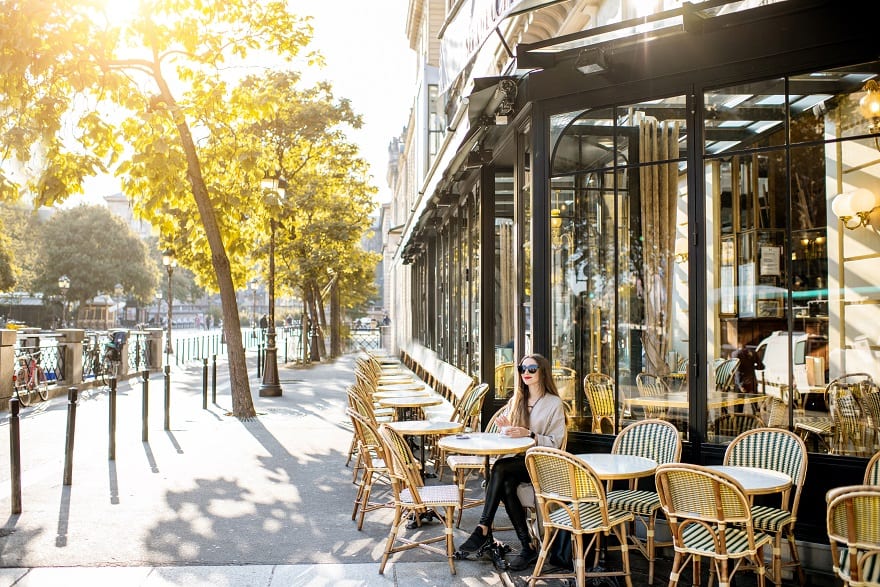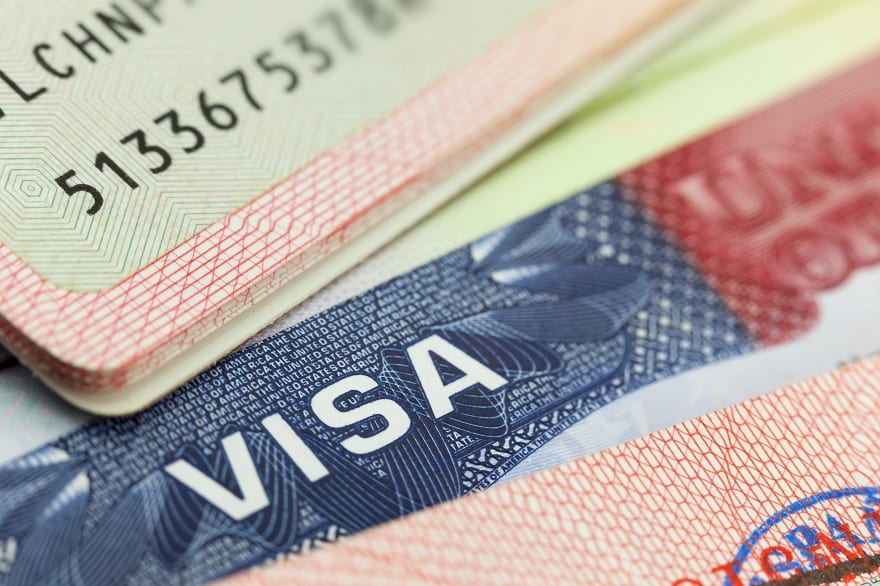Moving to France: Ultimate Guide
With the snowy mountainscape of the Alps, white sand beaches of the French Riveria, world-class vineyards, and more Michelin star restaurants than anywhere else in the world, it’s easy to see why France is the most visited country in the world. If you are craving a life that is full of that joie de vivre every day of the year, moving to France could be the best decision you’ve ever made.
While you’ve undoubtedly seen those romantic scenes of Parisian sidewalk cafes with the Effiel tower always just around the corner, few outsiders truly know what to expect of life in France.
Let’s look at what moving to France is truly like and what you have to know before you go.
Living / Lifestyle
The majority of ex-pats say that their quality of life increases noticeably after moving to France. Consistently ranking in the top five countries with the best quality of life, it is no surprise that people moving to France, love their new French home.
What Is It Like to Live In France?
Like most countries, life in France can vary dramatically from one area to the next. Just as you wouldn’t compare life in a rural Bedouin village in the UAE to the typical lifestyle of a person living in Dubai, we can’t paint the whole of French life with the same brush.
France consists of 13 areas, which when we look at them culturally, are often divided up into six regions. When it comes to lifestyle and terrain, French people and tourists alike often view the country as being separated into Northwest France; the heart of France; Northeast France; Southwest France; Upland France; and Le Midi/ Mediterranean France.
While Northwest France has a Celtic heritage and cultural links to its neighbours in the British Isles, Mediterranean France has more in common with Italy and Spain. Île de France, the region of metropolitan Paris and the surrounding suburban area, is what is often viewed as the heart of France while Upland France is defined by its sweeping mountain range and rural countryside.

Metro vs Urban Life in France
Though many of us have a view of France that is closely tied with Paris and urban life, there is actually only one city in the country with more than a million residents. With 2.1 million Parisians, the capital is the urban heart of the city.
Many people, however, live near cities in the wider metropolitan areas. In total, 12.5 million people live in the Parisian region and, taking into account all of the urban regions across the country 80% of French people live in a metro area.
France may have a largely urban population, but provincial life is highly regarded. In fact, about half of French citizens would prefer to live in a rural area. Unlike many countries that have suffered from rural decline, the economy is actually stronger outside of the metro areas.
Do I Need to Speak French to Live in France?
Most definitely. In France, it is very much a case of “you get what you give” within the communities. Those ex-pats who have made a diligent effort to learn French and interact with those in the community consistently report high levels of integration. Speaking French makes it easy to get to know your neighbours, become part of the community, and make friends. Meanwhile, without French, life is indeed very isolated.
Cost of Living
What Is the Cost of Living in France?
Of course, your cost of living will vary dramatically depending on where you opt to live. If you are moving for work, there is a good chance you will be going to Paris, Lyon, Marseille, or Toulouse. If you are headed to Paris, you will find the most expensive prices in the country.
From rent to groceries to every aspect of daily life, Paris is significantly more expensive than other places. Even a small single-room flat of 45 m2 will set you back anywhere from €1,200 to €1,700. Meanwhile, you can get a relatively spacious one-bedroom apartment for around €600.
While higher wages can make living in Paris the best choice, it is essential to consider the cost of living in France. The cheapest cities in France are Metz, Versailles, and Montpellier so these are good options if you work remotely. If you are planning to move to Paris, it is well worth looking at commuter towns in the wider metro area. They offer quieter communities and better housing options and are sometimes within less than a 30-minute commute from the city.

How Much are Basic Goods and Services in France?
Whilst Paris is quite expensive, by European terms, the cost of living is reasonable and in the rest of the country cost of living is relatively low. Local fees and taxes are generally lower than the rest of Western Europe especially the UK.
- A meal at the standard restaurant is likely to cost around €10-€12 per person with a beer costing around €4-5 and soft drinks around €2 per can. Local wine is of course very good value with a good bottle costing approximately €4-€5.
- At the local supermarkets, you would expect to pay similar prices to the UK and US with the loaf of bread costing around €1.50, a litre of milk around and a dozen eggs roughly €3.
- Public transport is good and relatively cheap. Taxis start around is €5 and then roughly €1.50 per kilometer thereafter. Petrol is approximately €1.25 per litre.
- Typical 1-2 bedroom apartment in the city would be around €700-€900. Outside of the city rent would reduce to roughly €450-€500
- Basic utilities for an average two-bedroom apartment will be around €120-€140 per month. Prepaid mobile phone charges are roughly €0.19 per minutes and broadband Internet us around €25-€30 per month.
For more information and further prices in France check out Numbeo
Moving to France
What Moving Documents are Needed For Moving to France?
- Copy of passport
- Visa, if applicable
- Packing List
- Detailed Inventory valued in Euro and signed by the owner of the goods
- Certificate of change of residence by the French Consulate
- Certificate of Transfer
- Non-resale attestation
- Proof of residence in France
- Bill of lading (express release) / air waybill (AWB)
- Sales invoices for items purchased within 6 months prior to import
- Original certificate of title
- Current vehicle registration
- Import declaration
- Copy of vehicle purchase invoice showing taxes paid
- Vaccination record
- Veterinary health certificate
For more information on restricted and prohibited items and a more in-depth look at documentation please check the International Association of Movers.
Legal / Visas
Which Visas Do I Need for Moving to France?
When moving to France, visas are a top consideration. The best visa option for you depends entirely on your nationality along with your career skills and educational background.
If you are from a country within the European Union, European Economic Area, Switzerland, Andorra, or Monaco, it is an incredibly simple process. Unlike many European countries, you don’t even need to organise any official residency paperwork. You can simply arrive and use your own passport as identification.
How to Get a Long Term visa for France
If you want to stay in France for more than 90 days, you will need to get a long-term visa or visa de long séjour in French. Before you enter the country, you have to prepare your documents at the French embassy or consulate in your home country.
Always be extremely careful to only rely on official information from the French government. While it is great to read tips online, the only truly reliable source of info is the local government. Look to websites that end in “gouv.fr” to know it is official details. This is doubly important if you are submitting any personal details. When you are applying from abroad, only work with your local embassy or consulate. Agencies simply create delays while adding costs and, worse yet, scam agencies exist to do nothing more than steal your documents.

Requirements for a Visa in France
There are a few different ways to that you can show your eligibility for a French visa. Keep reading below for a full list of all of your options.
You can get a long-term visa in France if you have one of the following:
- A work contract with an employer that is based in France
- Enrolment in a French school
- An internship with a company that is based in France
- A scientific project requiring research in France
- A spouse/immediate family member with French nationality
- A spouse/immediate family member with French residency
- Sufficient funds, travel insurance, and accommodation for long-term tourism
This full range of circumstances will put you into one of four visa categories: a family visa (vie privée et familiale) allowing you to join your family; a study visa (étudiant); a long-term tourism visa (visa long séjour visiteur); or an employment visa (salerié). The majority of ex-pats arrive with the employment visa.
How to Get a Work Visa for France?
The process of getting a work visa is relatively straightforward in France. By far and away the biggest obstacle will be securing the right job in the country before you arrive. Once you have decided on an employer, they will contact the DIRECCTE (Regional directorate for enterprises, competition, consumption, work, and employment) and work with the foreign labour section to get your visa in order. This department will then approve your contract and send the details to your local embassy or consulate. At this stage, you will be contacted by the closest French offices to finalise your documents.
If you have a unique qualification, you may be able to get a compétences et talents card or even an EU Blue card, which allows full access to the countries of the European Union. There are a wide range of potential qualifications so, if you have a skill set that is in high demand, this is an option well worth researching.
Money & Taxes
What Is a Good Salary in France?
Though the cost of living in France is comparatively high even for Europe, the income potential is also exceptionally high. If fact, more than 30 per cent of ex-pats earn over 85,000 euros in France while the average ex-pat outside of France makes an annual wage of around 68,000 euros.
When you are working in France, come prepared for a culture shock (and a pleasant one!). In France, there is a 35-hour working week that is legally limited. When you go for lunch, expect a break of anywhere from one and a half to two hours.
Embrace this. While it might be tempting to show yourself as a hard worker who doesn’t look for time away from the office, you are indeed better off to integrate into the culture. If you want to make a good impression, go for a leisurely French lunch with colleagues rather than logging more time at your desk.

How Do Taxes Work in France?
Like many European countries, you will find a graduated system of tax in France. That means that the more you earn, the more you will pay in taxes.
For salary up to €10,064, you will pay no taxes at all. For income exceeding this amount, you can expect to pay the following percentages:
€10,064 to €25,659: 11%
€25,659 to €73,369: 30%
€73,369 to €157,806: 41%
€157,806 and above: 45%
Note that there is a wide range of exemptions available so you will likely not pay this full amount. To ensure that you’re both in compliance with the laws and maximises your potential tax exemptions, it is well worth hiring a local accountant specialised in ex-pat taxes. They typically pay for themselves.
Climate & Weather
What’s the Weather like In the France?
Just after Russia and Ukraine, France is the largest county in Europe. Its large and diverse space is divided into four different climatic regions. In the western part of the county, you will find an oceanic climate with mild temperatures and regular rain. In the south and east, there is a continental climate with hot summer and cold winters. Meanwhile, along the coastline, you will find a Mediterranean climate.
The coldest month of the year tends to be January. At the start of the year, you will see temperatures in Paris fall below three degrees C at night. During July, the hottest month of the year, Paris sees sunny afternoons usually hovering around 25 degrees C.

Buying & Renting a Home
Buying a Home In France
The rate of homeownership has been increasing in France in recent years and currently stands around 65% of the total population. It is with noting, however, that there is a significant divide between rural and urban homeownership. While those in rural areas and small towns are highly likely to own their own property, many urban residents rent for decades.
Can Foreigners Buy Property In France?
Yes, there is no limitation to who can own property in France. If you are new to the country or have a less than a fluent level of French, however, it is highly advisable to work with a professional estate agency to simplify the process.
How to Rent in France?
Many property owners opt to use agencies and brokers to find tenants for their home. Property agencies are called agences immobilieres and you will start seeing this phrase regularly as you start searching.
To find a place, you can visit the office of one the agences immobilieres in the area you are looking to move or you can start searching online.
Where to Find a Rental in France?
The majority of rental properties are listed on the following popular websites:
While searching online is very common these days, don’t underestimate the value of hitting the streets. It is still typical for property owners to simply hang up a “for let” sign with a phone number. If you know potential areas where you want to live and speak French, this can be a good option.

Working with a Property Agent in France
Whether you find your apartments online or offline, it is crucial to proceed with caution. Before you hand over money, spend the time to visit the office and website of the agences immobilieres.
Fortunately, absolutely all real estate agents in France must have a professional qualification called a carte professionnelle. It is well with requesting proof of this qualification as provides an extra layer of security to know that you are working with a real professional. In addition to having this certification, most will be registered with the Federation Nationale de l’Immobilier (FNAIM), Syndicat National des Professionels Immobiliers (SPI), or Union Nationale de la Propriete Immobiliere (UNPI).
Types of Home in France
If you are renting in the city, you will generally be looking at flats and apartments with an occasional house. When you are renting outside of the city, you will find a far greatest selection of options.
- Bastide: A detached house (typically made of stone with a flat roof)
- Domaine: A property with additional land (like a vineyard)
- Ferme: A farmhouse with additional land
- Pavillion: A type of bungalow
- Longere: A long single-storey home (often a converted barn)
- Mas: A provincial farmhouse
When you rent a property, you will find a range of options that are both furnished and unfurnished. Typically you will see that shorter lets are furnished while longer leases are more likely to be furnished.
Thinking about moving to Paris? Read our free guide on how to rent in Paris.
Healthcare
How Does Healthcare Work in France?
According to the World Health Organisation, France has one of the best systems of healthcare on the planet. With a life expectancy of 82.5 years, the quality of care shows; particularly when compared with the life expectancy of 77 in the UAE, 79 in the USA, and 81 in the UK.
All residents working in France pay 20% of their income toward the state healthcare system. Every resident of the country then has access to the system via a Carte Vitale, which you will receive upon registration. All you need to do to get started is to complete the S1 form online.
Once you are set up with the account, you will need to register with a local GP or a Médecin Traitant. For a visit with a GP, you can expect the state coverage to pay for 70% of the cost.
To cover the remaining 30% of the cost, many French people opt to get a type of complementary health insurance called a Mutuelle. Different from private insurance, this is a type of coverage that works in conjunction with public healthcare.
Education
Moving to France with Children
France is consistently ranked amongst the best places in the world to raise a family. In fact, in a recent HSBC’s Expat Explorer Survey, ex-pats rank their family life as truly exceptional, with France rating amongst the top five countries in the world for ex-pats with families.
Expat families in France have an exceptionally high level of integration. While just over 30% of ex-pats worldwide send their children to public schools, more than 60% of all French ex-pats send their kids to public school. In the same HSBC survey, more than half said that managing education ad childcare in France is easy.

The Education System in France
While compulsory education begins in France at age six, many kids attend what is called Ecole Maternelle from age three to six.
From age six to 11, kids attend Ecole Elémentaire then move onto Collège for ages 11 to 15. Form 16 years old, teens can opt to discontinue their education but nearly 95% continue on to Lycée, which they attend from ages 15 to 18. In rural areas, it is common to find kids attending boarding school from Monday to Friday.
Final Thoughts
Moving to a new country can be a little disconcerting, and left unchecked these feelings can develop into anxiety and stress. Moving to France, as we have seen, brings with it both exciting opportunities with some potential challenges. However, embracing the changes and adopting a proactive approach through the advice, tips and links we have provided sets you firmly on course to a successful relocation to France.
Why not get things moving by completing our simple form, enabling international movers to start work on your moving quotation, today!








